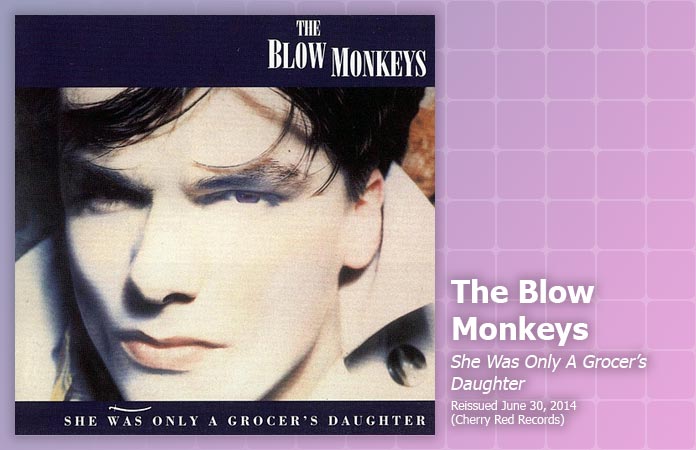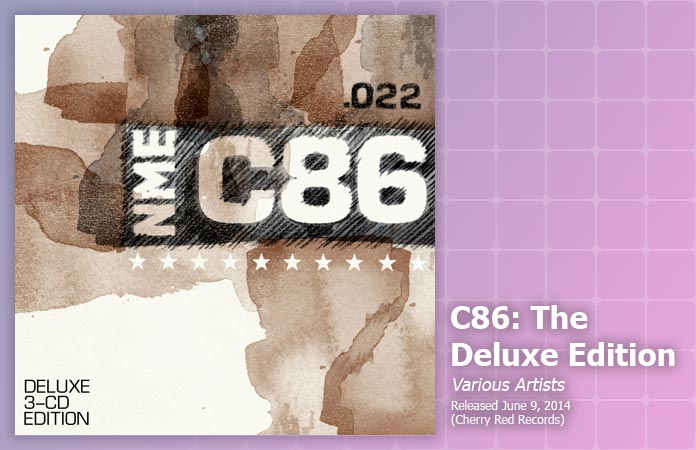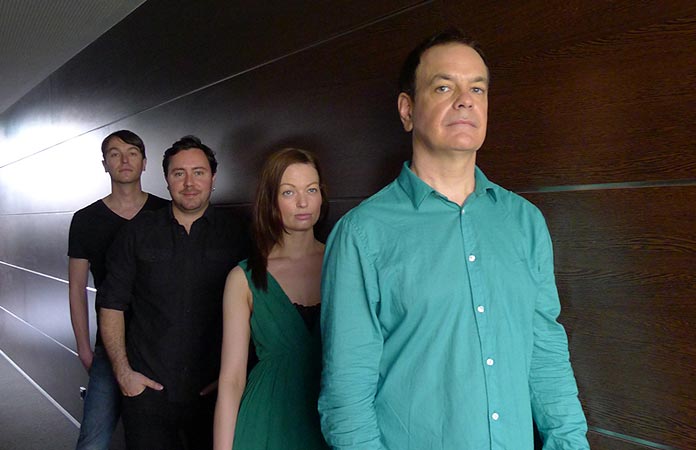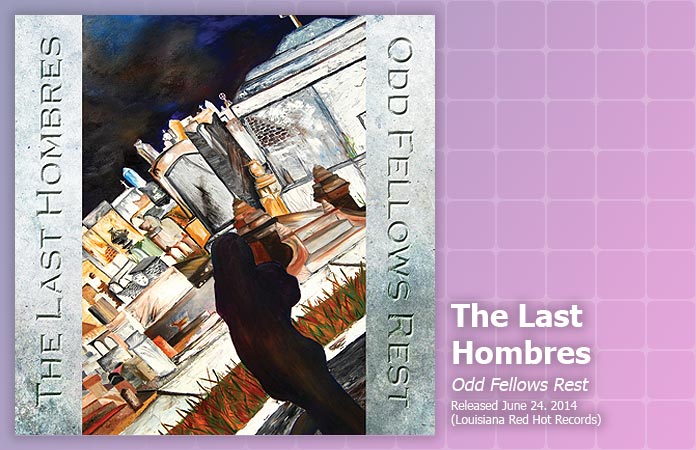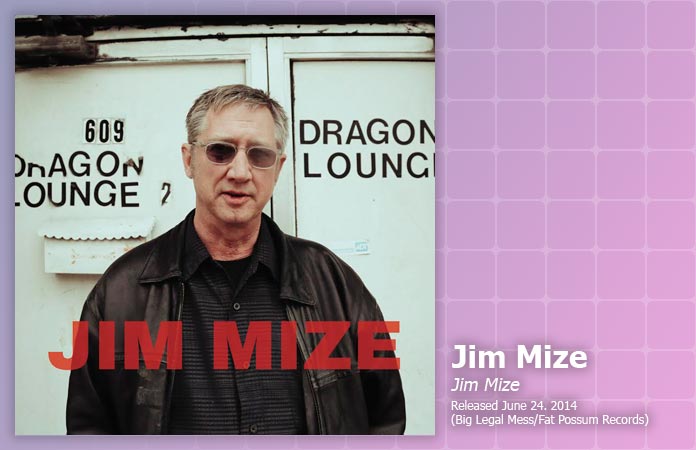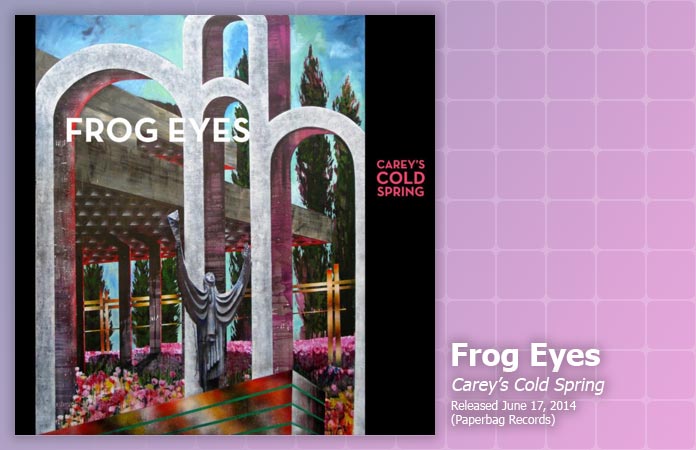Music Review: Cabaret Voltaire, #7885 (Electropunk to Technopop 1978 – 1985)
Published on July 25th, 2014 in: Current Faves, Music, Music Reviews, Reissues, Retrovirus, Reviews |#7885 (Electropunk to Technopop 1978 – 1985) continues the fruitful relationship between Cabaret Voltaire and Mute and includes revamped reissues of CDs and DVDs in box set form. These releases were initially broken into time periods, which for Cabaret Voltaire makes a whole lot of sense, because essentially you’re dealing with strikingly different sounds. #7885 is a distilled version of many creative ventures placing the entire era of the band together on one release for the first time.
Music Review: Janiva Magness, Original
Published on July 25th, 2014 in: Current Faves, Feminism, Music, Music Reviews, Reviews |If there were any justice in the world, Janiva Magness’s newest, Original, would be as ubiquitous as Adele’s last album. You should hear her songs pouring out of car windows, women (and men) singing along, tears in their eyes from the sheer power of it. After all, Magness has an unbelievable voice, emotive and strong, and writes personal lyrics that speak to everyone. Janiva Magness, of course, isn’t marketed that way, which is a shame. She needs to be heard by a wide audience. She’s amazing.
Music Review: The Blow Monkeys, She Was Only A Grocer’s Daughter (Reissue)
Published on July 25th, 2014 in: Current Faves, Music, Music Reviews, Reissues, Retrovirus, Reviews |After reissuing The Blow Monkeys’ first two albums, as well as their stellar newest album, Feels Like A New Morning (review), Cherry Red Records has released a deluxe edition of 1987’s She Was Only A Grocer’s Daughter. And a deluxe edition it is—remastered, chock full of remixes and astoundingly good demos, enhanced by an interview with The Blow Monkeys frontman, Robert Howard (Dr. Robert), in the liner notes. It is a boon for completists, collecting all the bits and bobs into one excellent package.
Music Review: La Roux, Trouble In Paradise
Published on July 25th, 2014 in: Current Faves, Feminism, Music, Music Reviews, Reviews |Though the BPMs on La Roux’s new album, Trouble In Paradise, are lower than on her surprise hit debut, it’s still the kind of record that moves you to the dance floor. After a tumultuous break (losing her voice, breaking off from her former partner in La Roux), Elly Jackson has returned with a much warmer, fun record, and it’s a very welcome one.
Music Review: Various Artists, C86: The Deluxe Edition
Published on July 25th, 2014 in: Music, Music Reviews, Reissues, Retrovirus, Reviews |“C86 was introduced to the world on 3 May 1986 when the NME revealed that the next tape to be released in its highly-popular and long-running cassette series would be a compilation of indie bands.” So begins Neil Taylor’s extensive, exhaustive liner notes for the deluxe edition of C86, now expanded from its original 22 songs into three discs’ worth of music. If you weren’t around for the original version, The Deluxe Edition should give you hours of listening enjoyment as well as the excuse to delve into the discographies of dozens of bands.
Interview: David Gedge And The Scene That Wasn’t A Scene, C86
Published on July 25th, 2014 in: Interviews, Music, Music Reviews, Reviews |It’s June 14, on the eve of England’s first World Cup game in Brazil, and I’m in a muggy club in London, surrounded by an alarmingly large number of bald and bespectacled middle-aged men. It’s a show organized by Cherry Red Records, who have just released a massive three-disc edition of the NME‘s seminal C86 collection, first issued as a mail-order cassette nearly 30 years ago (review).
I’m here to watch bands featured on that cassette, some of whom sound like they haven’t played together in many years. But that certainly doesn’t apply to The Wedding Present, now into its fourth decade as a recording and touring band. Despite numerous personnel changes over the years, the face and voice of The Wedding Present remains taciturn singer/guitarist David Gedge. We talked about the origins of the C86 project, whether it was ever really a “scene,” how difficult it is to be a working musician nowadays, and, just for fun, what England’s chances were in the World Cup.
Music Review: Circulatory System, Mosaics Within Mosaics
Published on July 18th, 2014 in: Current Faves, Music, Music Reviews, Reviews |By John Lane
Two things I want to get out of the away in the beginning of this review: Comparisons have been floated already in numerous reviews about this new album. The first is the comparison to The Beach Boys’ SMILE; while flattering perhaps to them in a remote way, I cannot think of a more off-base touchstone. To compare Mosaics Within Mosaics to SMILE is like visiting a wax museum and comparing the waxworks (SMILE) to the Easter Island statues (Mosaics). This is not to denigrate SMILE or Mosaics Within Mosaics, but rather to illustrate that the two albums occupy two entirely different planets not worthy of comparison. It’s like gazing at the cover of Sgt. Pepper’s Lonely Hearts Club Band, observing the moustaches, and then saying the whole thing reminds you of The Village People because, you know, moustaches.
The second point of contention is the casual throw-around of the word “psychedelic” in all these reviews. Again, lazy and misleading, as the term itself has a sort of anachronistic dusty taint to it—would Steve Reich be considered psychedelic because of his experimentation with form and structure? I feel like the old person shaking his head at a young woman wearing styles that were unflattering in “my day.”
Music Review: The Last Hombres, Odd Fellows Rest
Published on July 18th, 2014 in: Music, Music Reviews, Reviews |After a decade of not recording together, roots rock band The Last Hombres have reunited for Odd Fellows Rest. Noted for being the band that Levon Helm asked to join, The Last Hombres make what could be considered bar band music: bluesy guitars, that certain middle of the road tempo, sing along choruses. The thing that sets The Last Hombres apart and far above the fray is their outstanding musicianship. Each song is like a master class on how to play with technical excellence as well as passion and is paired with literate lyrics.
Music Review: Jim Mize, Jim Mize
Published on July 18th, 2014 in: Current Faves, Music, Music Reviews, Reviews |You can call Jim Mize a lot of things: eccentric, a hopeless romantic, and a visionary. You can also call him a great storyteller in the fine Southern tradition of raconteurs. On his latest release, the self-titled Jim Mize, he makes snapshots through well-placed words and his singular guitar work. The album feels rooted in the South in music and lyrics, though there’s not much that explicitly states it. But the South gets in, like kudzu, and Mize is an Arkansas native. It’s in the water. Or the air. Or possibly the dirt.
Music Review: Frog Eyes, Carey’s Cold Spring
Published on July 11th, 2014 in: Current Faves, Music, Music Reviews, Reviews |By Hanna
After a hiatus of three years, during which the album was already mostly finished, Frog Eyes’ Carey’s Cold Spring was self-released by Carey Mercer through Bandcamp last October, and is now being released by Paperbag Records on vinyl and CD.


